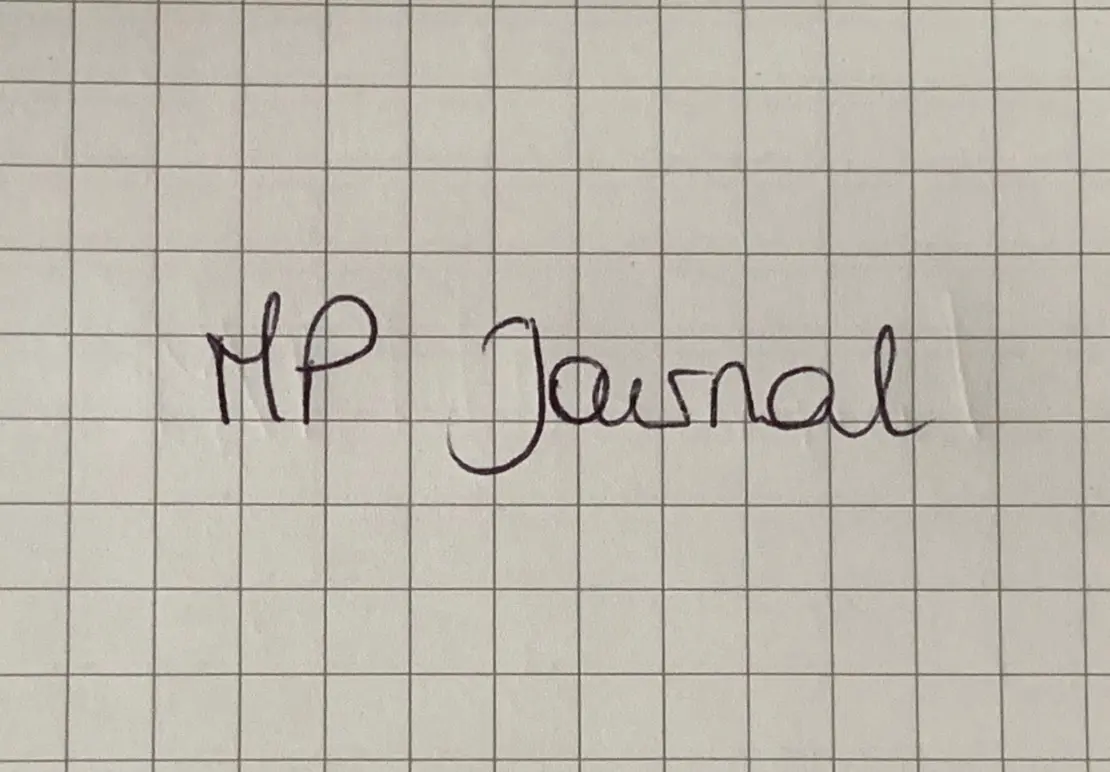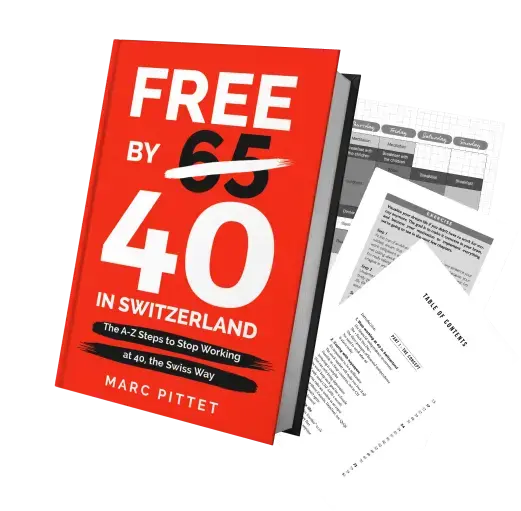In the last episode, I explained how my entrepreneurial parents had laid the foundations of my education that today enable me to pursue a long-term goal such as financial independence.
From 8 to 13 years old
Today, we’ll talk about about my pre-teenager time. These years have only anchored my frugal principles even more deeply.
Grocery shopping once a week
Every Friday after school, my mother would pick us up with my cousin and we’d go shopping for the following week. I remember it quite precisely because it announced 1 hour of game in the supermarket between hide-and-seek and tag play (we did it discreetly otherwise it was punishment ^^).
Apart from the fun, it implicitly sticked with me that one only goes to the supermarket once a week and not many times a week, risking else to be fooled even more by the gondola and their so-called “Deal of the Day”.
It’s so natural for me now that, coupled with an even more frugal mind, we decided with Mrs. MP to go further and only do our grocery shopping every two weeks. On the one hand, it allows us to avoid temptation, but also and above all to do other more interesting things than spending our lives in supermarkets.
No takeaway food
Coming from a family of the countryside, I didn’t enter a McDonald’s until well after I was 13 years old. I’m not sure it’s THE solution because I was there quite a bit once I had my own home.
Nowadays, it’s still something very exceptional and I think it’s partly because I didn’t get into a routine where we bought all our meals in take-away mode.
The only takeaways my parents bought were pizzas that a truck sold next door to where my brother and I used to do our swimming lessons. Again, it was once every two weeks. The exception rather than the rule.

I didn't enter a McDonald's until I was 16, and frankly, that's a good point! (photo credits: Google Maps)
Frugal holiday
Every summer, we’d the chance to go on holiday. We always went to campsites in mobile homes (my mother was not so outdoorish as to sleep in tents!) in the South or West of France.
I remember that excitement of getting up at 2:00 in the morning as a kid, and not being able to sleep a wink because I feared to miss the first moment when we’d see the sea/ocean!
It must have accentuated my wake-up-early side.
In terms of food, we went to 3-4 restaurants only during the week, and the rest of the time it was my mother who prepared food.
But we never went to hotels. After we left home with my brothers and sisters, my parents enjoyed them but never before.
It’s perhaps on hotels and restaurants during holiday that I have the most difficulty convincing Mrs. MP. And yet she makes a lot of compromises with the many AirBnBs we take, and the meals we do ourselves and other picnics. And I must admit that when you spend 350 days looking for ideas and preparing meal two times a day, it’s always nice to have 15 days a year when it’s zero-cooking mode.
And about my flaws, it’s more the point of going abroad for holiday (i.e. across the Atlantic or the Indian Ocean) where I have trouble restricting myself. I like to discover new cultures and landscapes so much that I’ve a hard time staying in our area. Even if wrongly, because in nearby Europe alone there’s already a ton of things to see and do.
But still, I calmed down, and since we fell into frugalism, we only make our big trips once every three or four years (which is already huge!)
Sport is free
I don’t know if my parents never belonged to a sports club as adults because they weren’t used to it as children themselves. Or if it was because of lack of time with their company that was a sport (physically) in itself. Or maybe it’s because sport is something that can be accessed for free thanks to the nature that is available all around us.
Anyway, almost every Sunday between March and October, we’d go on a 15kms hike with family members or other friends. Personally, I really liked it because it was often in the forest and I was already attracted by this environment. But above all, I loved the fact that once a week we get a salami sandwich as well as candies or other tidbits that my mother used to surprise us with. I see it again with my own children but there is really no need for thousands of francs spent to make a kid happy! Salami, and candy :D
So in terms of frugality, it was great because we didn’t spend hundreds of francs to go to amusement parks or other outings like that. Nature, good food. With the advantage of keeping us healthy. And all of this for 0 CHF (except for petrol perhaps).
Sport and perseverance
My parents think that sport is free, at least for them. Because as far as we were concerned, we’d always do one or two sports of our choice.
On the other hand, there was a rule.
If we started a sport, we’d to stick to it until the end of the year. It forced me to learn perseverance. Because clearly, when I was having my swimming classes, there’re several times at the of the day in December or January when I could’ve avoided with pleasure a 3km swim in 20-21 degrees water… but it forges you. And I don’t regret anything today. I’m grateful that my parents raised me like that.
At certain times in my life, it may have been to my disadvantage because I remained closed to other sports and other discoveries. But I was able to make the difference as I grew up, and now I can apply that principle where it makes sense, and stay open-minded about other things. Typically, with my financial independence goal, I can only thank my parents for having transmitted to me this principle of life that is perseverance. And in terms of openness, I’m much more likely not to finish a book nowadays if it doesn’t bring me value.
Learn to budget (finally!)
It was my father who introduced me to the concept of budgeting. Unfortunately, I no longer have a written record of my savings book but from memory, I was around 6 years old when he made me fill out my first line of savings.
He explained to me that I was in charge of knowing how much I’d in the bank when I entered each transaction in this little notebook — there was no ebanking at that time! And also that money didn’t fall out of the sky, and that it was better to save it to buy me something useful or that I really wanted, rather than spend it recklessly.
I can still picture myself at the desk in my room, entering line by line the money I received on my birthdays, at Christmas, or on other occasions. Month after month, year after year, I saw my fortune grow.
Just like today when I love the end of the year with the 13th salary and the bonuses that are coming, I was looking forward to this moment at the time because I was receiving by mail… the interests on my savings account (3-5% at that time)!
Nevertheless, I think that this economical side is also linked to my personality in addition to my education. Because my brother also received this budgeting intro but did not see it grow in the same way in the long term :)
Quality rather than quantity
It bothers me when I see big brands that only sell shitty stuff at very low costs (like Wish or Alibaba), that do not represent by far the reality of the market (if we take into account the cost of production in China, transportation, etc.) and that try to make people consume as much as possible by selling them junk.
Be careful, I’m not saying I’m against discount brands, quite the contrary. I’m talking about quality here.
And with this introspection, I realize that this principle also comes from my parents. They have always raised us by telling us that it was better to save a few more months to opt for a qualitative article, rather than always wanting everything right away and cheaper, but which would last less over time.
Two concrete examples in our current life:
- I prefer to buy a Mac (Apple) when I see how they hold up over time with their fast operating system even after 5 years, rather than taking a PC at 250.- (like Acer) at low cost but having to change it every year (I know this topic is religious for some, but I’m really talking about the quality of the experience here in relation to the price — and yes Apple abuses a little)
- Another (less flamewar-prone) example of quality: our Toyota Prius from 2006. For much less than an Audi or BMW, you get a vehicle that is much more durable and much cheaper to maintain. And if we compare it to French brands where we could’ve had something new rather than an used car, well I can tell you that after 6 years soon, we still haven’t had an orange/red light that lights up, or a strange noise in the cabin (I generalize but you know what I mean)
As Juliet Schor said in her interview for the “Minimalism” documentary :
We are too materialistic in the everyday sense of the word, and we are not at all materialistic enough in the true sense of the word. We need to be true materialists, like really care about the materiality of goods.
I have to admit that my parents still surprise me today when I see how they educated me in this way…
Help others without compensation
At home, with both my parents and grandparents, it was normal as a child to help out, without any consideration or pocket money (I have never received allowance money in my life).
In the list of chores, we’d: mowing the lawn, helping to collect dead leaves, helping my grandfather with his garden, and many other things that aren’t fun but that forge you.
When we grow up in the family cocoon, all the rules by which we live seem to be the norm to us, and therefore applied everywhere else in the world. Very quickly with the socialization through school, I realized that not everyone lived according to this same “norm”. Some had money for every task, others never helped with chores. As a result, I obviously tried to fight back once or twice, but it didn’t work because my parents knew that they were teaching me these principles and values so that later on it wouldn’t all be about money but also about helping each other. And above all, it was important for them not to raise lazy people who do nothing all day and who want everything to fall into their mouths without moving a finger.
When I see where this benevolence and habit to “work” has led me, I assure you that I’m working hard to pass on these values to my children.
No allowance = more creativity!
As I said, I’ve never had any allowance in my life. My parents bought me what I needed, and there’re birthday/Christmas gifts otherwise (as explained in the previous article). The only few times I was paid was by my grandparents for really hard and long chores (cleaning a henhouse for 2-3 hours, does that resonate with you?)
So, since I still wanted to buy toys or other video games for our computer, it made me creative.
Some examples that bring back so many memories as if it were yesterday:
- I must have been 8-9 years old when, after hearing about the raffle system at school, I had the idea to copy the business model. I had an uncle who worked in the charity domain, so I quickly created a 30-box grid for sale. I told the people in my village (door-to-door at that age worked like a charm!) that half of the money raised would go to the charity. I would buy the winnings with 25% of the turnover, and the remaining 25% would be for me! Except that… my mom heard about my idea after I sold half lof the grid. And she told me: “That’s great, but we don’t abuse charity. It’ll be 100% of the benefits for the association.” As I’d already started selling, I could no longer cancel the thing. So I’d to keep going door to door, and ended up with nothing in my pockets. But a great life lesson that still stick with me today, where I do business that adds value to people (vs. trying to sell them anything without ethics as long as it brings cash)
- The other more successful example I remember is when we went with my cousins to gather hazelnuts, and sold them along the road that passed by my grandparents’ house. I don’t remember how much we made in one afternoon, but it seemed like a huge stash
This may all seem ridiculous and insignificant. But it cultivated my entrepreneurship and system D way of thinkg with the means I had at disposal at the time. And this state of mind is now more deeply rooted in me than ever before. It allows me to be more efficient in my job, but also in my other activities such as this blog.
Life lessons
After this analysis of my 8 to 13 years old period, I have a better understanding of these characteristics that make me who I’m today, namely:
- This organized and prepared mindset with regard to shopping in order to optimize our purchases and trips to the supermarket (and therefore avoidance of temptations…)
- The fact of taking takeaway meals very exceptionally in the evenings, and never at lunchtime (or how to save CHF 400 per month)
- This constant moderation with the choice of our holidays where, yes, we have fun, but without spending inconsiderate amounts (although we’ve already gone abroad more times than our parents in their lifetime)
- This love of the outdoors that makes me like our apartment in the Swiss countryside so much, with its immense forest nearby. And above all, it provides all the infrastructure necessary to do sport at 0.- per year (cycling, running, family walks)!
- This perseverance in everything I do, learned through sport. This blog is a perfect example, since its creation in 2014
- This ease to budget all our expenses with YNAB without respite. This allows us to have a net worth of more than CHF 350'000+ to date
- This natural way of privileging quality rather than junk in quantity. That explains why everything about minimalism resonates with me
- This willingness to help each other between friends, neighbours, and also blog readers, and not always to connect everything to money
- This business ethic to avoid using humanitarian causes to make a profit, or even in general to always think about adding value, before trying to sell a service
- This entrepreneurial and creative spirit that serves me as much in my job as in my personal projects, as well as this DIY mindset rather than always relying on others (i.e. getting your hands dirty)
As said in the previous blogpost of this series, everyone will have a different opinion on these life lessons. But if you like one or the other, then it gives you some ideas on how to instill that in your offspring education. I am a living proof that this is paying off in the long term!
Next article: 14 to 18 years old
The following part of the series will focus on my adolescence, between summer jobs and the first financial recklessness…
What did you learn from your 8 to 13 years old? And above all, what educational factors have influenced these learnings?
The blog turns 5! (including teaser of my new …
How to onboard your partner on a common budget and...







Last updated: December 22, 2018